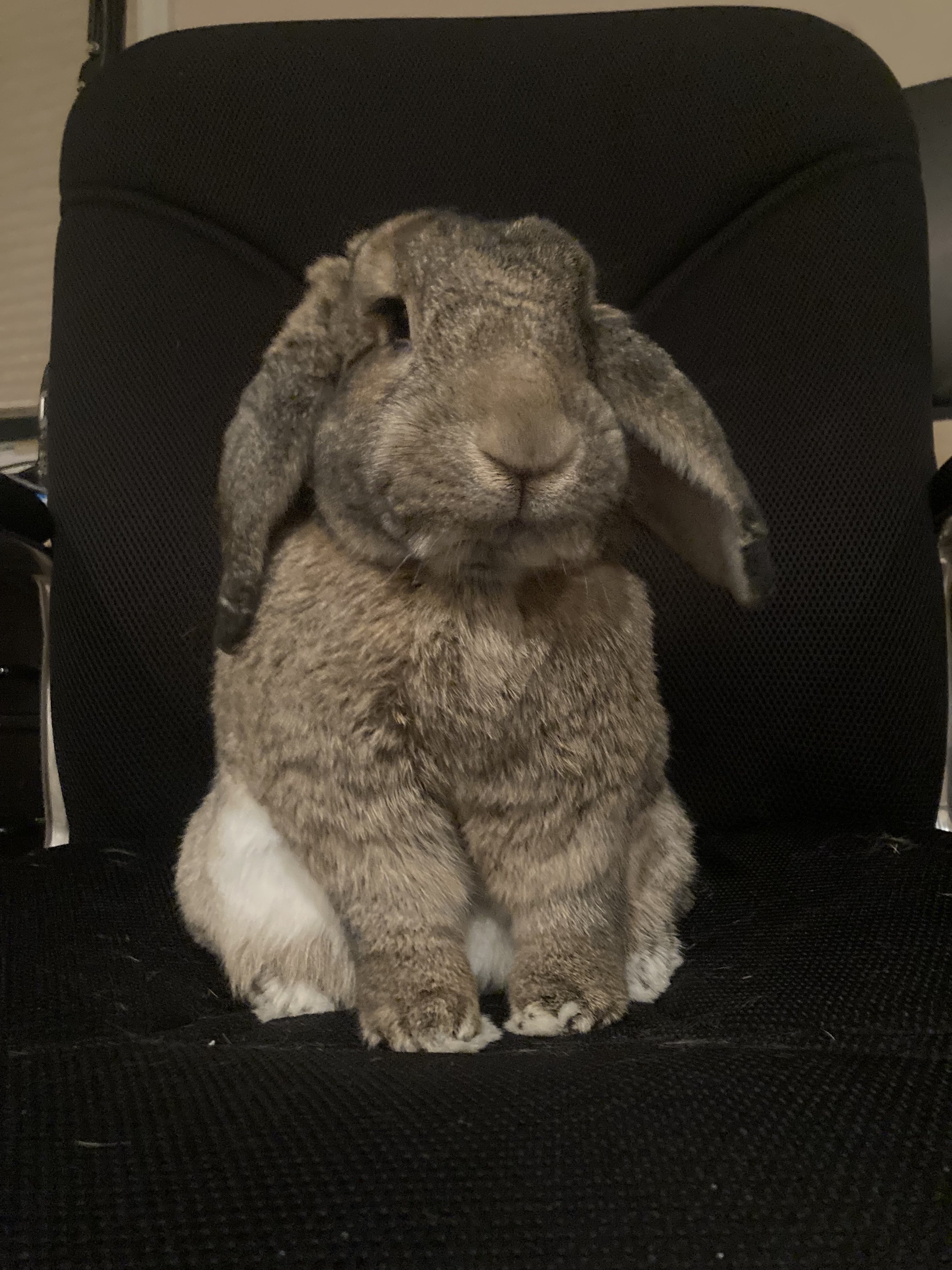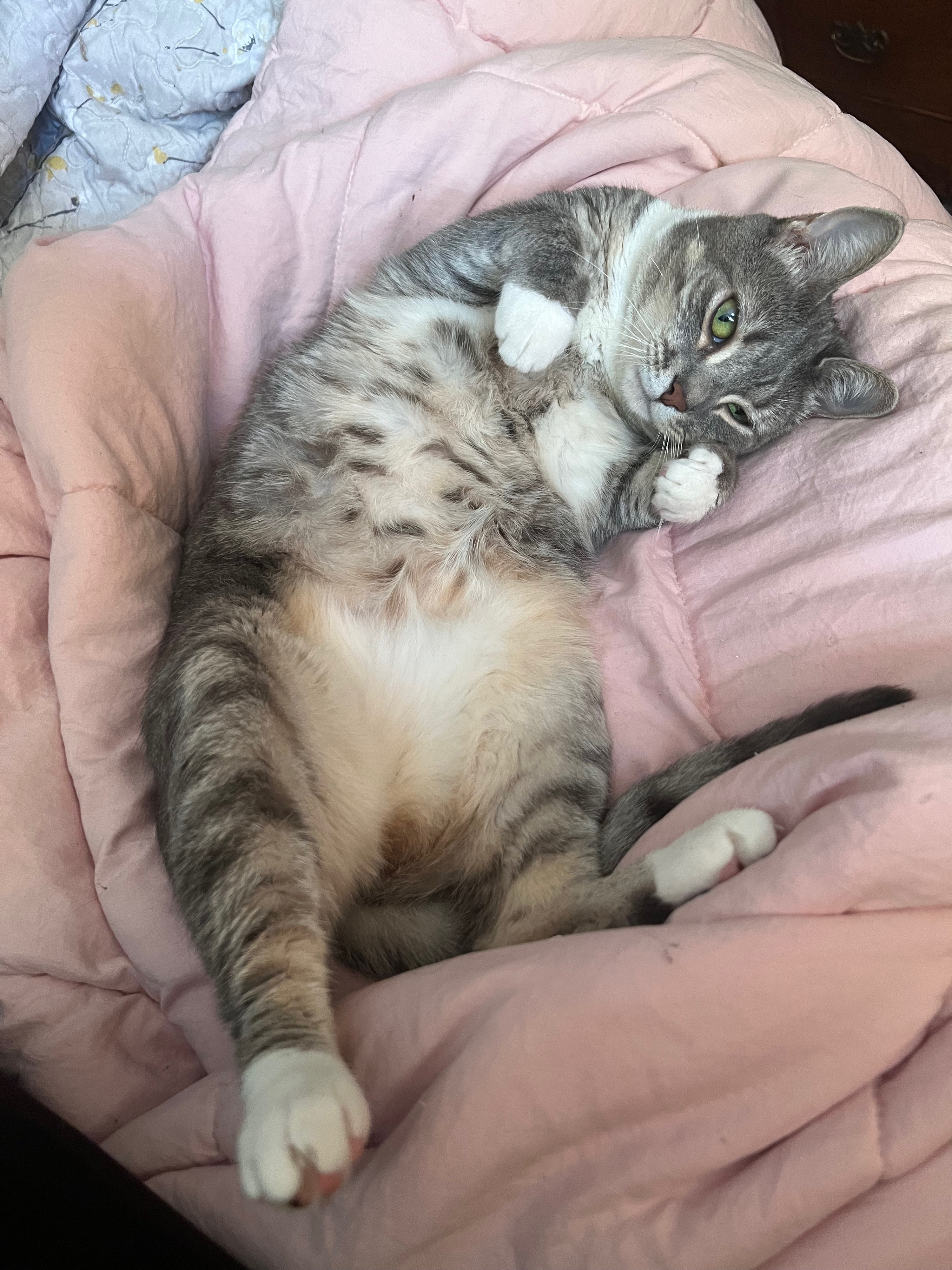
Zamora is trying not to resent the dog she and her partner, Nick, got in April 2021, but it’s hard.
“I love her very much,” said Zamora, who is 25 and lives in Arizona. “I like to play with her. I like that she keeps me company while Nick is out of the state, but I wish she was a cat. I wish she didn’t need so much of my time and attention and energy, and that I didn’t feel guilty that I’m not able to give her all of those things. I try not to resent her for it and I try not to resent Nick. … But it’s frustrating.”
When they got Boudica, a Labrador retriever who is now 2 years old, Nick, who uses they/them pronouns, wasn’t working, so they were able to stay home with Boudica and take her for several walks and runs per day while Zamora was working in an office. But now, Nick is working in another state and hasn’t been home since August. Boudica’s behavior has deteriorated — she’s been peeing inside the house — which has been challenging for Zamora, who has never had a dog before.
“I feel guilty because I want her to be with someone who wants her and I want her to feel like she gets enough attention and to feel loved, and I do love her, but…” Zamora said, trailing off.
Regretting getting a pet is not something a lot of people admit.
Alex, whose name has been changed in this article because she fears backlash, said she regrets getting her Great Dane in October 2020. Alex said the 2-year-old dog isn’t loving and calm like some others of that breed; instead, he is wild.
“I love him so much and it’s a very complicated feeling,” said the 35-year-old, who lives in New York.
Alex has tried all sorts of training, but nothing has helped.
“I was expecting one thing and as much time and effort and everything I put in, it’s just not what I wanted. It’s kind of a letdown. And now things in my life are more difficult because of him,” she said. “I love him so much, and he is my baby. And I know he loves me and I know he has a good life, but then the shame of having these feelings is very present and very real.”
Jessica Avery, who lives in Ontario, Canada, got her German shepherd, Frankie, three days before Canada entered lockdown, making Frankie a true pandemic puppy. Since Avery returned to work in the office full-time this summer as a marketing manager, she has been sending Frankie, who is now almost 3, to doggie daycare twice a week.

It costs $50 per day for Frankie to go to daycare, while it costs $20 per day for Avery’s human son to go to before- and after-school care.
“When we were looking at our budget, I knew I would have to give up special stuff for me to make sure she’s cared for.”
On the days Frankie doesn’t go to doggie daycare, Avery gets up at 5:30 a.m. to walk her and then also plays with her after work.
“She’s a German shepherd,” Avery said. “She’s a working dog. It’s not like I can just throw a toy around for 10 minutes. She needs work.”
Without the physical simulation, Frankie will often chew something up. “I would say in the first six months, I lost all of my work shoes,” Avery said.
After people all over the world entered lockdown during the COVID-19 pandemic, many adopted a pet to help with their boredom and loneliness. According to a 2021 study by the American Society for the Prevention of Cruelty to Animals, 1 in 5 American households adopted or bought a cat or dog during the pandemic. The majority of those animals have stayed with their owners, but now that most Americans have returned to working in the office either part-time or full-time, some people are now wrestling with their pets’ behavioral issues, their own complicated feelings about being apart from their animals, or even regret.
Most respondents to the ASPCA survey reported that they had not rehomed their pandemic pet. But the Guardian reported in October that no-kill shelter New York Animal Care Centers has seen a 25% increase in pet surrenders this year, compared to 2021. And there are other growing pressures on pet owners: A Forbes Advisor survey in August found that “nearly two-thirds (63%) of pet owners said inflation has made it more difficult to pay a surprise vet bill.”
Shannon Kirkman, director of development and communications at Animal Haven, told BuzzFeed News that if someone is regretting adopting a pet because it ended up being harder to train, then animal rescues typically provide resources to help.
“But more than anything, if you have a pet in your home and it is not working out for you, then it’s not a good situation for you or the pet,” Kirkman told BuzzFeed News.
“We will always accept a pet back in our care, whether they’ve been with you for 24 hours or for 15 years. We never want someone to feel like they’re forced to keep an animal in their home when it’s not working out for them.”
According to a study by the National Library of Medicine, pet-related guilt is typically unrecognized and unacknowledged, and not understood by people who don’t have pets. This often leads to pet owners feeling anxious or depressed.

Jennifer Skelly’s 2-year-old goldendoodle, Jack Ruby, will let her know when he’s upset that she has been away for nine hours.
“He’ll pull something off the coffee table and chew it up,” Skelly said. “Or get into the bathroom garbage. It almost feels like a slight. Like, How dare you leave me at home by myself?”
Skelly, who lives in Lake Tahoe, California, got Jack Ruby just a few months before she entered lockdown, so he’s used to having her at home. She went back to work about a year ago and said she now sends him to doggy daycare on Mondays, Wednesdays, and Fridays. Daycare costs $15 per day.
“That still ends up being $45 a week, which at the end of the month — I’m terrible at math, but it’s definitely an additional expense on top of all the monthly stuff that I’m already paying, and I just was really not used to that,” Skelly said.
On top of that, Jack Ruby had an accident about six months ago after he fell over a waterfall while on a hike. He had to spend four days in the dog hospital, and because pet insurance didn’t cover the entire stay, Skelly had to pay about $2,000 out of pocket. There are plenty of other unexpected expenses that add up. For example, pet toothpaste can cost around $15 for a small tube.
Skelly said that when she leaves Jack Ruby home alone on Tuesdays and Thursdays, he typically acts out. On those days, she spends her unpaid half-hour lunch break driving home so she can let him out. “So you’re talking about the gas, going to and from, and the time crunch. It’s definitely a little bit more difficult than I would like it to be,” she said.
Daphna Luchins, a college student in New Jersey, adopted her pet rabbit, Apricot, in July 2020 because she wanted a friend during the lockdown.

Toward the end of lockdown, Luchins started nannying. When she returned from work, she found that Apricot, who roams freely around her home, had chewed up string lights around Luchins’s bed, something she didn’t typically do.
Luchins bought a pet camera so she can watch and talk to Apricot, who now lives with Luchins’s fiancé when she isn’t home.
“She definitely responds. She hears us [through the camera] and her ears will perk up,” Luchins said.
Some owners, like Jess Krivda, an administrative analyst for the health IT department for the city of Philadelphia, where she lives, experience separation anxiety. When Krivda started going back to work in the office a couple of days a week, she noticed she was anxious about being away from her pandemic cat, Lenore — so much so she left that job for another, as an administrative analyst, that would allow her to work from home full-time.
“I would just feel her presence not being there, if that makes any sense,” Krivda told BuzzFeed News. “I’m super used to having her stuck to me, [so] when she’s not there, I get anxiety.”

Kyle Morse, who owns the dog-walking company Simply Yours Concierge in Princeton, New Jersey, told BuzzFeed News that he’s noticed a considerable difference in how dogs and cats behave now as opposed to prepandemic. Since March 2021, his business has grown exponentially. He went from about 15 people on staff in March 2021 to 55 this October. He said the dogs he works with are now more shy and nervous around strangers; some are even afraid to take a walk without their owner. Pet owners have also become “hypersensitive” to their pets’ needs.
“A growing number of our clients have begun to have their [appointments] scheduled closer together or more frequently in the day for the pets to have more companionship, and there have also been bookings of longer length visits for extra companionship to have someone stay with the pet and not leave,” he said. “A heightened emphasis has been placed on extra long [appointments].”
With some pet owners still working from home, Morse said pets are becoming more dependent on attention, so when the owners leave, the pet's mood changes and they can become less friendly.
But for several pet owners, their pets are a source of support during a stressful time.
“Getting her was the best decision in the world,” Krivda said. “I ended up going through a breakup during the pandemic and going from living with my partner to living on my own, and I think having her be so stuck to me really helped me a lot. She and I play fetch together, and that’s a big coping mechanism for me when my anxiety gets too high, and it really helps calm me down. I think pandemic pets are great.” ●
